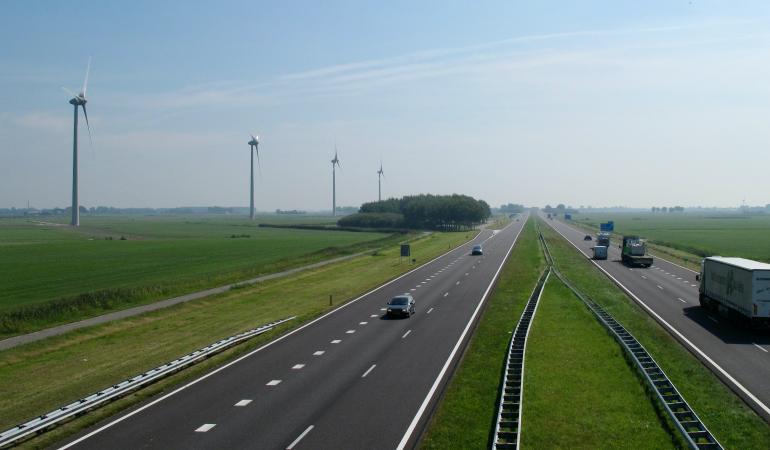
In 2021, greenhouse gas emissions were 1.8% higher than the year before. This marked the first time emissions had gone up since 2016. In 2020, emissions declined by 8.8%. The 2021 increase is largely attributable to CO2 and to the cold winter. Overall, greenhouse gas emissions are now 24.9% lower than in 1990. Emissions of ammonia declined more than 1% (1.4 kilotonnes) in 2021 relative to the year before, mainly due to a reduction in livestock. RIVM/ER published these (and other) definitive figures for 2021 today on emissieregistratie.nl.
Greenhouse gas decline stalls
Dutch greenhouse gas emissions have been declining since 1990. Up until 2017, methane, nitrous oxide and F-gases accounted for most of this decline. CO2 emissions also started going down in 2016, as natural gas and renewable energy sources replaced the use of coal for energy production. In 2021, CO2 emissions once more saw a slight uptick. This is mainly attributable to a cold winter season in which households used more natural gas for heating than in 2020. Relative to 1990, CO2 emissions were down 14.8%.
Ammonia and nitrogen dioxide emissions down due to less livestock and cleaner transport
Ammonia emissions were down 1.4 kilotonnes in 2021 compared to 2020. This is
mainly attributable to a reduction in livestock. Protein content in feed for dairy cattle was also lower.
Nitrogen dioxide emissions were 4.1 kilotonnes lower in 2021 compared to 2020. This is mainly attributable to cleaner vehicles on the road (Euro standards). By contrast, emissions from burning fossil fuels for power and heat increased, both by 0.7 kilotonnes.
About the Pollutant Release and Transfer Register
The Pollutant Release and Transfer Register (ER) is a group of institutions working in partnership under the direction of RIVM. It records annual emissions from all relevant Dutch sources. In this way, it provides emissions data to substantiate environmental and climate policy. The ER also documents Dutch compliance with international climate agreements (UNFCCC, Kyoto Protocol) and standards governing large-scale air pollution (NECD, Göteborg Protocol).